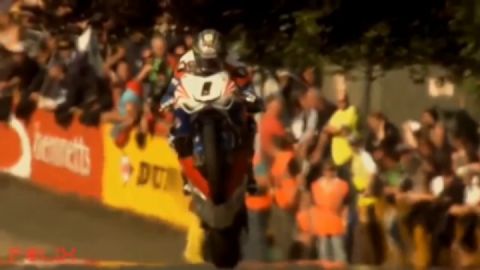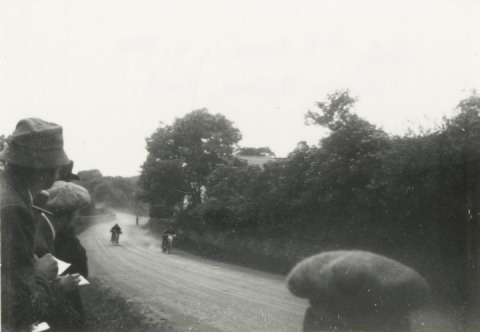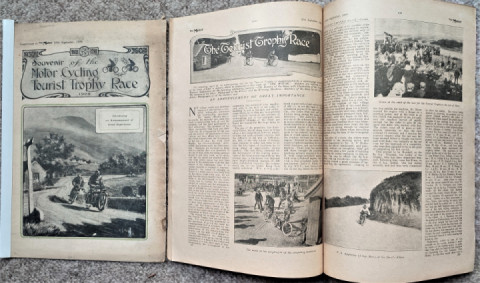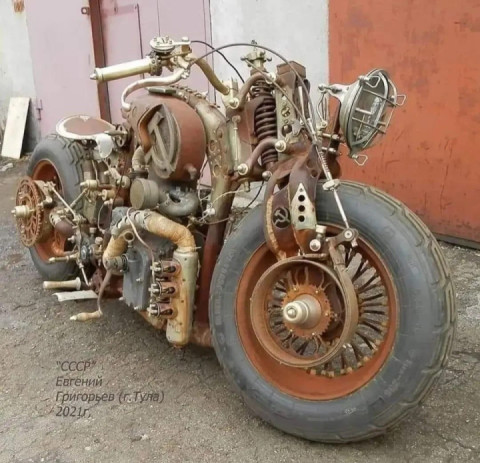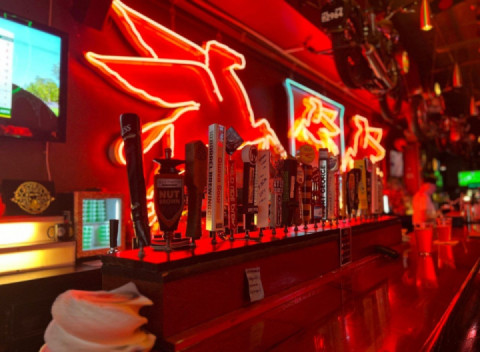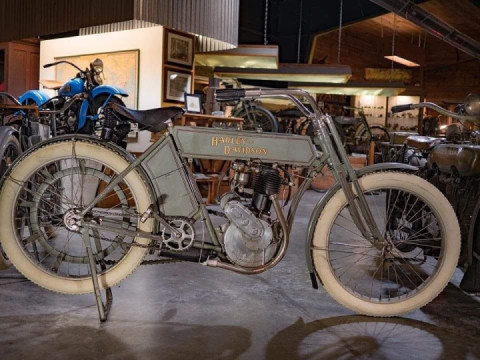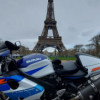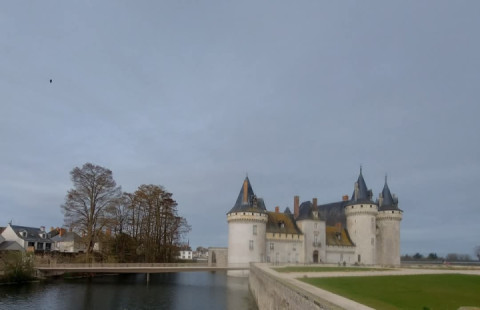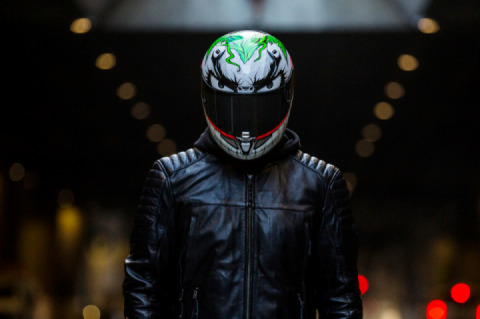1909 Yarns on a TT theme
If you’ve read through 1909 you’ll know what happened before and during the TT; here are some gems that appeared in the weeks following the big day. First past the post is this interview with Harry Collier.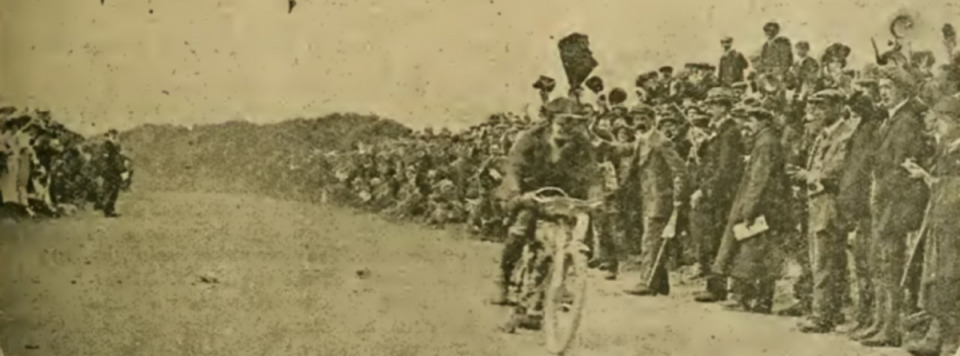
KNOWING THAT HA COLLIER could tell The Motor Cycle readers a good many interesting details about his splendid ride in the Tourist Trophy Race, we lost no time in paying him a visit at Messrs Collier and Sons’ well-equipped motor cycle works at Plumstead. Harry Collier, with the laurels of victory fresh on his brow, was busy tuning up the last Matchless to leave the factory, but he bravely left his task and meekly submitted to the ordeal to which we were about to put him. He took it all very modestly, this burly son of Britain, whose fame now rings throughout the motor cycle community all over the globe, and in his own mind considered his performance a very ordinary one. After exchanging the usual courtesies and repeating our congratulations, we asked if the race had been a strenuous one. “Certainly,” replied Collier; “quite the hardest in which I have ever competed.” “We know well,” we ventured, “you have had an unparalleled amount of experience on the track; when did your road racing really begin?” “Curiously enough, in the Isle of Man in 1905, on the occasion of the International Auto Cycle Cup eliminating trials, in which Campbell came in first and I finished second. The same year I was one of England’s representatives in the International Cup Race, and rode at Dourdan. The next year, 1906, I rode again, representing my country in Austria, and was fortunate enough to come in third, Nikodem being first and Obruba second, both mounted on Puch machines.” “But, to revert to the recent race, did you feel the strain at all trying?” “No, not a bit; but, as you can imagine, I suffered a good deal from a stiff neck, owing to the cramped riding position.” “During the race did you at all realise the position you were holding?” No, I did not know in the least how I was faring until the ninth round, and I did not even recollect passing Lee Evans.” “There were a good many spills,” we stated; “were you ever unfortunate enough to have a tumble?” “No, not even in practice. I think all good riders have come to the conclusion that it is better to take the corners slowly and keep in the saddle. Falling off wastes so much time, doesn’t it?” We agreed, and then asked if our gallant friend had pressed his Matchless to the utmost all through the race. “No,” he replied. “I kept a trifle in hand till the end of the first half, and then drove her all out.” “Did you experience any trouble?” we asked. “Not the slightest, but once I came very near to stopping at Creg Willey’s Hill. I had almost run out of petrol, just halfway between the two depots, and had I not had a device for totally excluding the air from my carburetter I should have fared badly. However, I almost shut this off, and by dint of careful coaxing I saw her safely home.” “No,” he replied, in answer to our query, “the hill never troubled, me at all—not even then.” “Do you think a better course could be found in the island?” we suggested. “No, I don’t think so.” “A trifle rough?” we ventured. “Yes, and that is its only fault. It has the advantage of being short, and short laps are always better from a spectacular point of view. The course in Austria was much longer, and certainly faster, but even there we did not do better than a 48mph average.” “And you don’t think the car course would be better?” “No,” replied our friend, “most emphatically not. It is too long, and then there are those unpleasant mountain mists, which we unfortunates with glasses do not appreciate.” We are well aware,”we ventured, “that the present course is by no means a fast one, but what was the best speed you think you attained?” “That is, of course, a little hard to say, but riders on machines fitted with speedometers who were following me put it at about 68mph.” “Fast enough, in all conscience,” we remarked. “And what about passing at this speed?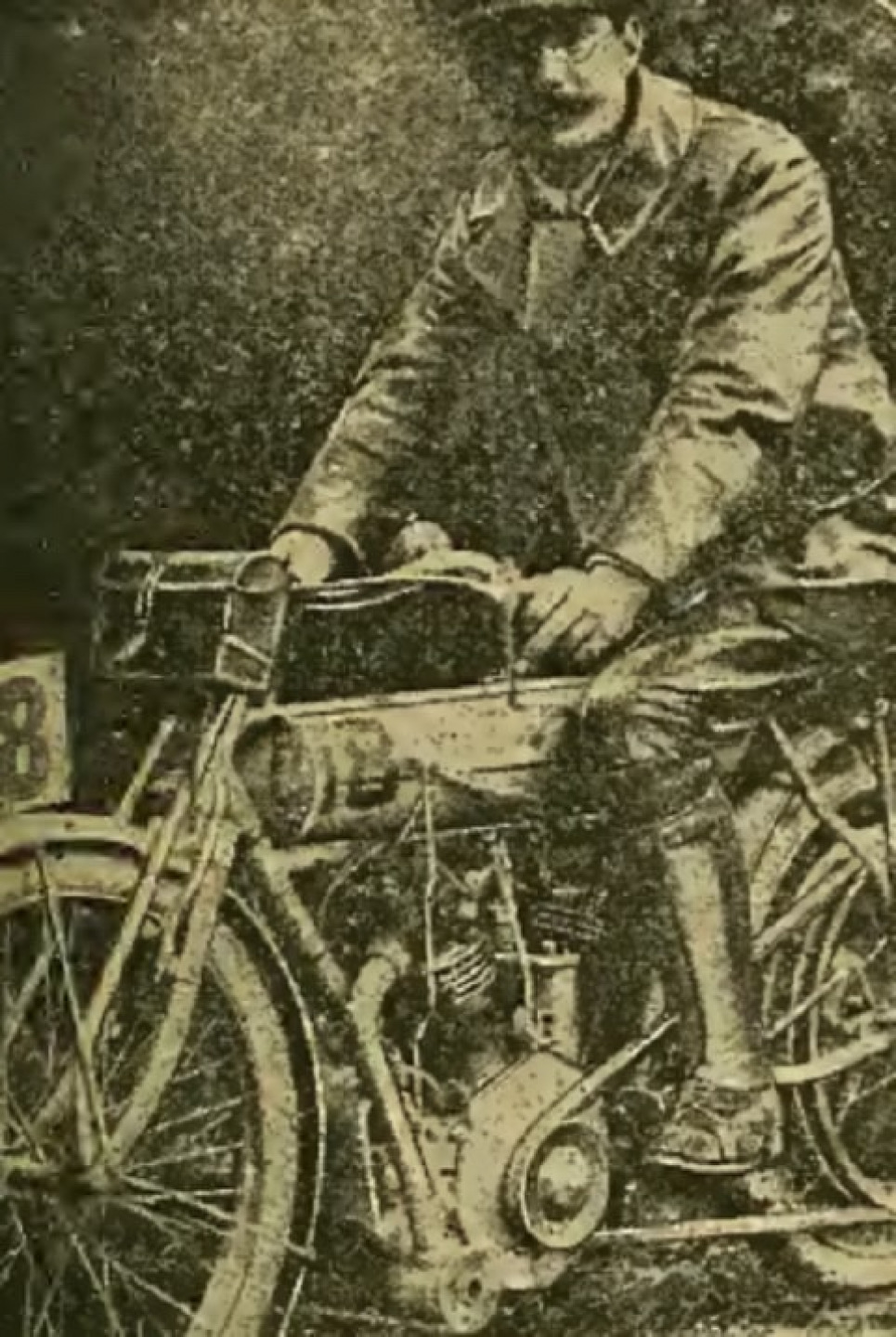
Did competitors get out of your way, and did they give you plenty of room?” “There was no difficulty at all. The men behaved like true sportsmen; there was room for all; and if I did not get a chance to go by at once I waited my opportunity, and then nipped in the gap without trouble.” “And are you looking forward to another TT race?” “Yes, indeed I am. Having won the trophy I am naturally not too anxious to part with it.” ”Your brother has more wins to his credit than you have, but,” we pointed out, “he had really bad luck in the race, even though it was certainly your turn for success this time.” “Yes, it was very hard on him, and he ought to have won,” modestly replied Collier, “as Charlie’s machine was a good deal faster than mine, and he caught me up during the early part of the first round. His engine had a higher compression, which it is well able stand, as he weighs a good deal less than I do.” “It is a long time to look ahead, but have you any suggestions for next year’s race?” we asked. “No, I don’t think so. It was all so welL carried out this time. I can only suggest that the St John petrol depot should be moved further down the road. Ballacraine would be a better place.” “And, as regards the cylinder capacity, do you,” we queried, “think there can be any improvement in this respect?” “This year,” replied Collier, “I think the singles and twins were pretty evenly matched.” “No,” in reply to a further query, “I don’t think the twins had at all an advantage, as some of the singles during practice and in the race were almost as fast. You see, the efficiency of the twin has not been very highly developed up to the present, but next year you will have to reduce their limit slightly.” “Your machine seems to have served you well, as it carried you through without a stop. May we,” we asked, “have a few details?” “It was a 5hp Matchless 85x65mm JAP engine, fitted with mechanically operated inlet valves, with the valves situated on the top of the cylinder, worked by overhead tappets. The ignition was by the latest V-type Bosch magneto running on ball bearings, one of the first to be brought over here. The belt was a Shamrock-Gloria 1in section, and the tyres 26×2¼in standard NS Dunlops. I also used Bowden control for the exhaust lifter, front wheel brake, and the model H Longuemare carburettor. All these fittings behaved splendidly, but I believe I should have got more flexibility but perhaps not greater power from another type of carburettor. The machine is now on view at Maude’s Motor Mart, Great Portland Street. That is all I can tell you about it.” We could see Collier was longing to go back to the machine he was so carefully tuning up on our arrival, and knowing the importance of his presence to its successful running, we said good-bye.
Following the TT successful participants were quick to advertise their achievements. However, Indian’s claims clearly irritated the lads down at Plumstead because they led to an extraordinary exchange of letters in The Motor Cycle…
“THE HENDEE MFG CO MAKE a comparison [in advertising] of the cylinder capacities of our 5hp Matchless (738cc) which won the TT Race and their Indian (714cc) which ran second, with the evident intention of suggesting that their machine was the more efficient of the two. That, however, is to ignore the respective weights of the riders, which are given as HA Collier, 11 stones; and G Lee Evans, nine stones 7lbs. The position is this, that our Matchless was of two and a half per cent greater cylinder capacity and carried fifteen per cent more weight of rider. These facts should be sufficient to show the relative efficiency of the two machines, but we should like to see this settled once more. We have much pleasure in hereby challenging the Hendee Mfr Co to match Mr G Lee Evans against Mr HA Collier, both to ride the identical machines used in the TT race, for a race on Brooklands Track for any distance they may prefer, and for a stake of £25 aside, which stake we will deposit with The Motor Cycle immediately on their acceptance of our challenge.
H Collier and Sons, Ltd.”
“WE HAVE READ MESSRS COLLIER AND SONS’ challenge…As regards comparisons as to efficiency, we can only think that the official handicapper of the ACU may have voiced the general opinion expressed when he essayed to put Mr G Lee Evans on his 714cc Indian on the same mark with Mr HA Collier riding a 964cc Matchless, giving Mr CR Collier on his 738cc Matchless 10sec and Mr HV Colver on a 964cc Matchless 20sec at the Brooklands meeting. Now that our London depot is open we are quite too busy for the balance of this year to indulge in any more racing but we hope to have the opportunity of meeting the Matchless machines in open competition another year, both at Brooklands and also in the TT Race.
WH Wells, Manager, London Depot, Hendee Manufacturing Co. ”
“WE NOTE WITH CONSIDERABLE SURPRISE and regret that the Hendee Mfg Co refuse to accept our straightforward challenge, and can only assume from the drift of reply to same that they prefer to talk about the efficiency of their Indian motor cycles rather than risk putting them to a test, from which they very apparently doubt their successful issue. In the actual race mentioned in their reply our machines finished first, second, and third, although one of theirs received 20sec start. The nearest one finished ninth. Again regretting that the Hendee Mfg Co have not sufficient faith in their production to match them on equal terms when absolutely challenged,
H Collier and Sons, Ltd”
The editor of The Motor Cycle decided enough was enough: “This correspondence must now be closed. We must leave the challengers and the challenged to conduct any further discussion on the same subject by means of private communications, but if the parties decide to meet each other in a friendly match we shall be pleased to announce the venue and conditions.” But then an American magazine claimed: “Uncle Sam scares John Bull–Evans, on American Motor Cycle, Leads in Isle of Man Race, but Stops for Fuel—Collier Passes and Wins.” That couldn’t go unchallenged: “The above headlines give one the impression that Evans’s stop for petrol lost him the race, but without wishing to reflect on the splendid performance of Evans in any way, we think it only fair that readers of The Motor Cycle on the other side of the Atlantic should know that Collier, the winner, stopped on two occasions for petrol.”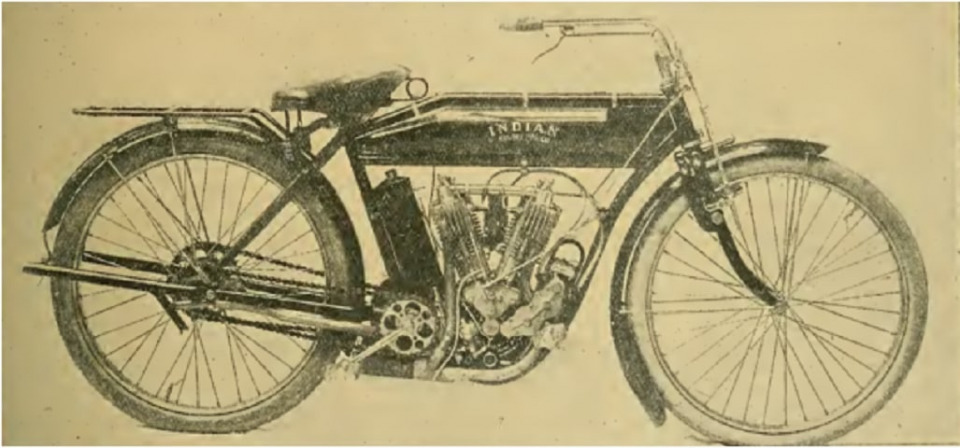
Here’s something out of the ordinary: advice for any daredevils contemplating a ride in the TT. In those halcyon days before the Great War it seems success was based on wearing wool next to the skin and plenty of cold baths…
FOR CLOTHING, MR BAGSHAW pinned his faith to good warm woollen vests and pants next to the skin, also a woollen shirt, thick socks, strong riding breeches with leggings, a leather waistcoat with sleeves, ordinary cloth coat and warm, thin gloves. A pair of mica goggles, a strong body belt and a heavy pair of boots should also prove useful. Personal training should commence at least three months previous to the race; but, before commencing, a strict medical examination should be first taken. A cold plunge first thing in the morning. One should not, however, be taken straight from bed, but, rather, should allow the body to cool a little. Dumb-bell exercise should follow for no more than a quarter of an hour, taking particular care that the breathing is attended to. After breakfast, have a short spin, and then attend to the ordinary work of the day. At night another spin, a light supper, exercise for another quarter hour, and early to bed. None or very little tobacco or drink should be touched. Drink, however, plenty of pure, cold water and have a hot bath once a week. When practising on the course, commence by going round two or three times quietly, and then once at a fast pace; return to the hotel, have breakfast, and then consider all the points of the course and what happened during your first ride. Each day’s practice will see you increasing both your speed and distance. Do not ride much during the daytime or you will have a tendency to become stale. About three days before the actual race see to the following: carburettor, magneto, valves, bearings, wheels for alignment and proper lubrication, piston rings, lubricating oil, etc. Mr Bagshaw, of course, did not mean this to be the only overhaul, but this particular supervision must be most carefully taken. The lecturer considered the physical strain of the race far greater than the mental strain. And he advised all motorcyclists to enter for the event “if at all possible”.
And, leaving the best till last…
Tourist Trophy Race
An impression. By ‘Ixion’.
The Man.
JUST AN UGLY, DIRTY, OILY, UNDER-SIZED little rat of a man, nervously gripping the steering bar of an ugly, dirty, under-sized, little motor cycle, all engine and tank? Ah, no! A rare being, a human biped, slowly evolved by the selection of thousands of centuries, the king of his race. Physically, a compound of steel sinews and leather tissues; grey cerebral matter sucked from an age-long ancestry, stored with the lore of force and motion and matter; spiritually superb, compressed essence of infinite hope and infinite fear, the parents of infinite pluck. Full of the worst forebodings, seeing death and ruin waiting potentially at every corner as it leaps up to meet him and lightning-swift dashes past, only to yield to the next. Coward, trembling, full of dread; every nerve strung to the uttermost, seeing in imagination his red flesh stripped and torn, white bones protruding, shattered and jagged. Hero, daring, un- daunted, laughing at death, challenging doom. Seventy miles an hour in the swoop down from Creg Willey!* Let a slender spindle snap, delicate rubber part its fibres under the cruel strain, and he shall never know when or how or why he died; but never a flinch—nay, rather, his fingers creep cautiously to shift a lever without losing their catlike grip, that he may snatch fresh impulse from the unleashed spirits of speed. Pluck personified—the pluck that trembles to its very marrows, and yet faces that which it fears.
The Race.
Here are fear’s spiritual forebodings translated into crude stone and steel and rubber. The coarse heave of the rude road destroys the imaginary poetry of motion. Every ridge and empty puddle hole catches his tiny, rigid, braced steed, and flings it violently to the next. Mazeppa’s course** was no such ride as this. The saddle jerks him upward and forward—the taut, stiff forks leap up vertically in front and cast him backward and downward—he cannot ease the shocks—there is nothing to do but cling, cling, cling for life itself. He sees his plump tyre flatten and squelch and roll, ready to hurl him to instant death or a cripple’s lifelong doom—it flings the machine sidewise, twists it, sets up convulsive shudders through its length—cling, man, for life itself! Then comes the moment of curbing for Ballacraine’s cruel right angle, fenced in by hard, forbidding walls of stone—the treacherous tyre slings him bodily sidewise athwart the road—his steel wrists right the projectile he sits, and his thumping heart chokes breathing as he faces the long series of right and left-hand swerves through tile twisting lanes to Glen Helen’s foot. It is one perpetual S prolonged to infinity, in sickening succession of granite wall and solid earthen bank, first right, then left, swerve after swerve, skid after skid, giddy and appalling. Then the leap over the bridge, with a double twist to be executed almost in mid-air—then more swerves and skids, and at last the appalling plunge up into the twisting rocking forest at Creg Willey’s foot, shaving the bank and walls with never a foot to spare—will the wheel never come round?
The Excitement of Speed.
Another human projectile in front, blocking that very inch of road where he must pass if he is to pass alive, a second roaring a yard or two to the rear. Ah-h-h! The straight road again, the fierce soar to the summit, the leaping switchback across the plateau where each low ridge comes up swift as thought, swirl beneath, kicks the back wheel shoulder high, and is gone. Then the frenzied gathering of breath for the long swoop down to Kirk Michael, where the outraged air presses the cheeks flat and drives down the rising breath, where deep waters roar past the ears, and distant forests leap into view and pass ere seen. Then the grind and rattle of the brakes, the scent of hot fibre and rubber as they char against the rims, the slow jerk of the wrists as the machine is flung round the V, a brief stifled cheer, and hey! for another devil’s dash into Peel, the intoxication of sheer speed sobered for one chilly second of awful, ice-cold fear as the front wheel shirks the double elbow two miles on. The roofs of Peel, the slow for the bends, the second of dreadful fascination to stop and stand, rather than risk and rush, then on again, till at last there leaps up the green at St John’s, with its black walls and stationary humans, its second of raucous applause, and a lap is thrown behind.
The Procession of Roaring Projectiles.
On and on, passing man after man, till the procession of roaring projectiles grows thinner and stream out, till those who threaten danger are marked out sighted, caught, passed, shoved away into oblivion behind, the exuberance of foreseen victory nerves him to wilder driving still. The petrol stoppage—the lead that felt so long is only a matter of seconds after all—on, on, on! Lap after lap is covered, and cast away over his shoulder, over and over again the well-remembered perils leap up out of space in never-ending succession lay their cold fingers on his heart-strings for a second and sink back into their lairs to wait his next appearance. The staunch engine grows a thought weary, and he with it. Valves of steel grow scarred and pitted, muscles cramp and ache, tissues soften and bruise, only the road remains unaltered, or do his weary faculties err when they credit the course with ever harder lumpiness, ever sharper bends? Are not the malignant sprites who haunt the road busy behind his back as he flits round, digging new potholes in the twining fresh twists in the hedges, steepening the sudden grades? Oh the thirst to fling his tyrant steed in some hedgebottom, to drain a tankard’s depths, to lie plunged in the lush grass, and forget the race’s ardours in the cool soft arms of sleep! With a wrench the indomitable will musters its weary powers to fresh mastery, more speed, and redoubled risks.
The Last Lap and Victory.
He loses count of the laps. He strives to mark the tiny digit on the dial of the watch strapped to his handle-bar, and forgets what it registered when he last left St. John’s. Terror! Is he a lap behind that red-coloured racer which threatens to make his dreadful task in vain? Again Tynwald Hill swings up out of the distance. His trusty henchman signals the last lap, and victory if he can keep going for fifteen miles more. Fear is now cast to the winds, so far as the road goes. He tackles the bends and corners with a wild recklessness. The steed, too, is stimulated. Never was steering so simple, never did the front wheel cling so tight to its appointed course, never was the wrist so firm, the eye so true. But the machine! Slight quivers and rattles bespeak the fact that joints are working loose, parting asunder. The very tyres are scarred and worn, thinner and looser. The engine has lost a trifle of the fierceness of its bark—it is sounding muffled and tired to his anxious ears, though the pace still runs high. Creg Willey for the last time. A slower man baulking him on the widest sweep of the bend. With a roar and a rattle and held breath he cuts inside and is past. An ominous knock-—what fear of over-oiling now?The pump piston rises and falls sharply—the knock is hushed—the engine roars anew, defying and triumphing over the gradient. Now he haunches himself low in the saddle for the last dread swoop down to the V at Kirk Michael—quicker than thought he is there, slowing, wrenching angrily, round, and on. Peel’s roofs leap up out of a blurred horizon, cut themselves clear in his vision for a second as he slows and swerves for the very last time. Then hell for leather into St. John’s—will that last gentle rise never come to tilt the wheel? Ah, here it is—the spire, the white gangway between the walls of black, the welcoming roar, the mark athwart the road, the yellow flag, the hands that madly clap! At last the firm, masterful hands pin down the revolving wheels, they slow to rest, and, half smothered by the frantic crowd of friends, the victor drops his weary feet upon the road, and slakes his dusty throat. So ends the 1909 Tourist Trophy Race, won for the third time on a British-made machine.
#tt #tt1909 #race #indian
 Follow
1.8K
Follow
1.8K


